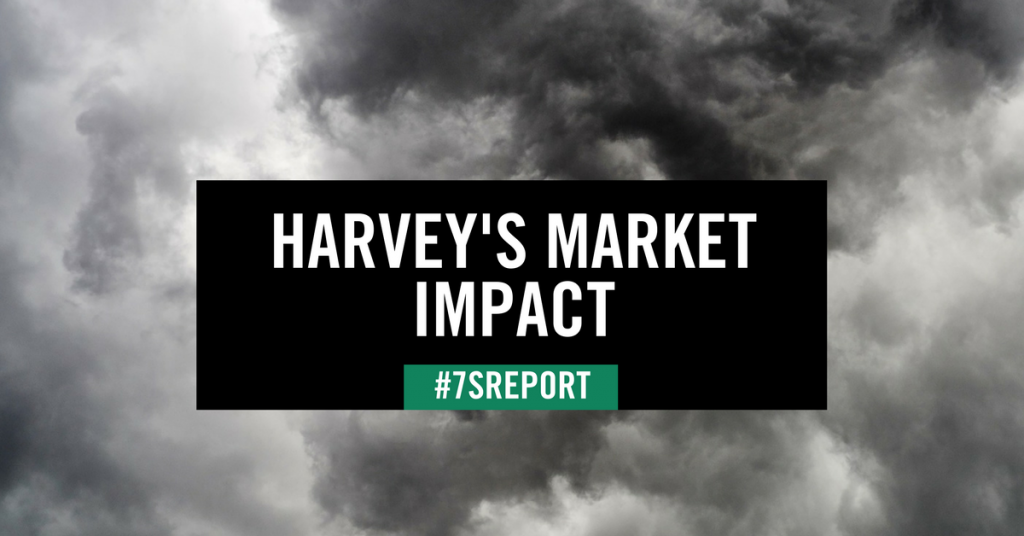Harvey’s Market Impact, August 29, 2017
The Sevens Report is everything you need to know about the markets in your inbox by 7am, in 7 minutes or less. Start your free two-week trial today and see what a difference the Sevens Report can make.
We got a couple of questions from advisors yesterday about the market impact of Hurricane Harvey, so I imagined you might be getting similar calls from your clients.
So, I wanted to clearly and briefly outline the market impact of the storm.
Macro Impact: Not Much. From a macro standpoint (Fed policy, GDP growth, inflation) Hurricane Harvey won’t have much of an effect. While clearly a significant human tragedy for Houston and Southeast Texas, storms simply don’t have a lasting effect on markets. Katrina and Sandy had impacts on the local economies, but again, the broader macro influence wasn’t big. Harvey does not change our “cautiously positive” stance on markets.
Micro Impact: The more palpable impact of Hurricane Harvey will be on specific market sectors, although I will not provide a list of “winners” given the damage wrought upon Houston and other parts of Texas.
That said, companies that likely will see increased demand due to the storm are: Refiners (HFC, DK), trucking companies (KNX), and equipment rental companies (URI). Unfortunately, there’s not a clean ETF for these sectors, and the only tradeable infrastructure ETF is a global ETF, so I don’t think it’s applicable here.
Companies that are likely to see business decline because of Harvey are: Natural gas and oil E&P companies due to a lower production and lower prices (ETF is XOP), and insurers.
Looking at insurers, the focus there is on property and casualty insurers as they will be the most affected by the storm. The big insurance ETF is KIE which traded down 1% on the news yesterday. But, while the first instinct would be to run from the insurance space, in some ways I view this as a potential opportunity to buy insurers on a dip (if this continues).
First, property and casualty insurers are just 40% of KIE. Yes, there will be more exposure through reinsurance (10.8% of assets), but that still leaves about half the assets of the ETF somewhat insulated from the storm. Additionally, 24% of the exposure of the fund is to the UK, and those should have little exposure to Harvey.
Point being, I’m not saying buy KIE today but I also want to look through the initial impulse to just shy away from the sector entirely. But, over the longer term, being long insurance companies are like betting with the house in a casino—they always win given enough time.
If Harvey creates an unreasonable downdraft in KIE, we will likely allocate capital to it for longer-term accounts. We’ll be watching this one going forward.
Time is money. Spend more time making money and less time researching markets every day. Subscribe to the 7sReport.com.

